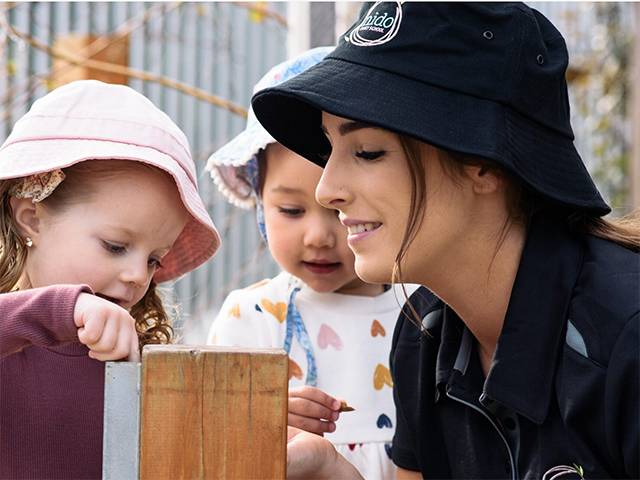How Positive Language Affects a Child's Self-Perception

Words are immensely powerful, and none more so than during a child's crucial formative years. The term positive reinforcement, and the science behind the subject is clear; positive language has a massive role to play.
"I've told you a thousand times not to do that. Why can't you learn?" vs "Do you remember that we've talked about why we don't do that? I bet you do – you're pretty clever at remembering stuff" is a good example of language differences. Both statements have the same meaning, yet the second is wholly positive. The former is not only negative but also suggests that the child is unable to learn at the pace we'd expect them to. In other words, continually using negative language, subconsciously chips away at self-esteem. Constantly being told not to do something, or that we're doing something wrong, doesn't only impact self-worth, but it also effectively shuts off communication. In turn, and especially in the early years, this has a detrimental effect on all aspects of development.
The Power of Positivity
Being subjected to positive words and language at any time of life is beneficial. But during the first seven years of life, when those all-important neuron connections are developing in the brain, encouraging words can be pivotal in helping a child become confident in themselves. The use of negative words - even one - stimulates the fear centre within the brain. When this happens, stress hormones are released, interrupting the brain's function. When we flip that on its head and use optimistic language instead, the stress response isn't triggered. Over time, this helps cement the feeling of self-worth in a child.
Positive language can too be further reinforced. Rather than simply saying things like, "that's great." or "that's a lovely picture," mentioning specifics can make the words even more powerful. Using a picture your child has drawn for example, you could say, "I'm so impressed that you've managed to colour within the lines," or "You chose just the right shade of blue for the sky." Such messages not only communicate that they've done something good, but it also makes your child think about why or how they did that. This further fuels their creativity and gives them the confidence to experiment further.
As parents and caregivers, it's also our job to create boundaries which is often the area where many of us struggle with. It's often challenging, when for instance, your child has a tantrum in the middle of the supermarket! Making a conscious effort to think about how you deliver your message will have a massive effect on your child's perception of themselves.
Don't Forget to Listen
When it comes to positive language, listening plays an important part. Conversations – even with very young children – allow them to communicate how they feel about themselves and what's going on around them. Listen to what your child is trying to tell you. By doing so, you'll not only further enforce the bond between the two of you, but you'll be able to help them validate natural concerns and worries.
Early Education providers such as Nido Early School can also provide support, guidance, and tips about how to use more positive language. While we can't promise that it will be all plain sailing when trying not to use negatives, your efforts will help your child become more secure and ultimately, a confident adult!
Author bio
Danielle Innes has over 21 years of experience in Early Childhood Education and Care in South Australia. She has held managerial and leadership positions in the private and community sectors and also worked with children with additional rights as Education Supervisor of SA's first Autism Specific Early Learning Centre. Danielle really enjoyed her recent position with the State Regulatory Authority, but felt a strong calling to return to childhood education and so joined Nido Early School in August 2019. She is also a wife and mum of three and balances work with a busy and active family life which includes sports, time outdoors and camping.
MORE



